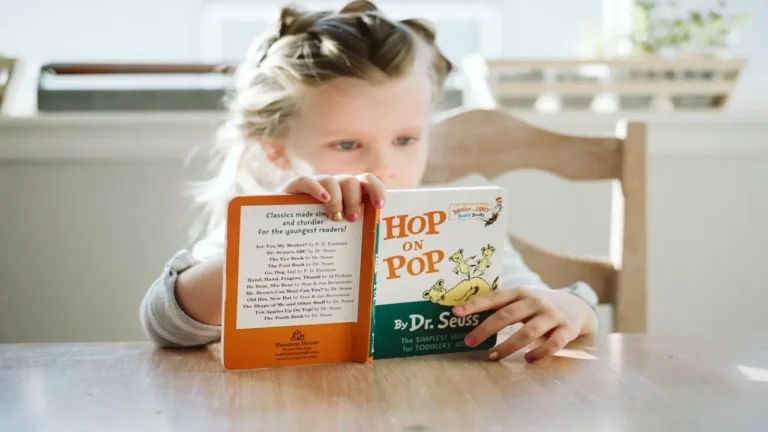How You Can Avoid Raising a Spoiled Child

Hey there, fellow parents! Ever found yourself in the toy aisle, indulging your child’s every whim, only to face tantrums later? You’re not alone.
Raising kids without turning them into a spoiled child is a tightrope walk. We all want to make our little ones happy, but where’s the line between pampering and overindulging?
We live in a world where giving in to demands can feel like the easy way out. But what if I told you that indulging too much might lead to an over-pampered, self-centered kid? It’s a slippery slope, but don’t worry. We’ve got the tools, tips, and empathy to help you navigate the maze of parenting with grace and self-discipline.
In this guide, we’ll explore the art of better parenting, focusing on fostering gratitude, patience, and understanding. We’ll delve into the difference between a privileged, demanding child and one who’s appreciative and well-behaved. Ready to embark on this journey of child-rearing with a fresh parenting approach? Let’s dive in!
Understanding Spoiled Children
What Defines a Spoiled Child?
What Defines a Spoiled Child? The Telltale Signs
Ever wondered if your child might be, well, a bit spoiled? It’s a question that nags at many parents. But fear not! Identifying the signs of a spoiled child isn’t about pointing fingers or laying blame. It’s about understanding behaviors and attitudes that might need a little tweaking. So, what are the common characteristics of a spoiled child? Let’s break it down:
- Struggling with the Word “No”: Does your child have a hard time hearing or processing a simple “no? It’s a classic sign that boundaries might need reinforcing.
Recognizing these signs isn’t about labeling or judging. It’s about understanding where adjustments might be needed in our parenting approach. It’s about fostering gratitude, empathy, and respect without stifling the joy and wonder of childhood.

The Risks of Spoiling
Why Spoiling Children Can Be Harmful
Let’s face it, we’ve all been there. That moment when you just want peace and quiet, and giving in to your child’s demands seems like the quickest path to tranquility. But hold on a minute! Before you hand over that extra cookie or buy that unnecessary toy, let’s talk about the risks of overindulging our little ones.
You see, spoiling children isn’t just about the here and now. It’s a pattern that can lead to long-term consequences. Think about it: A child who’s over-pampered becomes entitled, expecting everything handed to them on a silver platter. They lack self-discipline, restraint, and often struggle with behavior management.
But don’t just take my word for it. Studies show that 42 percent of parents admit their child is spoiled, and a staggering 80 percent believe that spoiling kids now will affect them in the long run. Dr. Karen Ruskin, a renowned family therapist, warns, “You do your kids a terrible disservice if they go out into the world thinking it revolves around them.”
So, what’s the big deal? Well, a spoiled child often grows up lacking empathy, understanding, and the ability to tolerate disappointment. They struggle with self-control and often feel overprivileged and demanding. It’s not just about the occasional tantrum; it’s about fostering a mindset that can hinder their growth, relationships, and success in life.
But here’s the good news: It’s never too late to turn things around. Reinforcing good behavior, setting boundaries, and practicing patience can make a world of difference. It’s about finding a parenting approach that balances compassion with discipline, love with guidance.
Ready to dive deeper into the tools and techniques to avoid raising an over-spoiled child? Stick with me, and let’s explore this parenting journey together!
Strategies to Avoid Raising a Spoiled Child
How Can You Foster Gratitude and Respect?
Parenting is a wild ride, isn’t it? One minute you’re the hero for finding the missing toy, and the next, you’re the villain for not buying the latest gadget. So how do we navigate this rollercoaster without raising a spoiled child? Let’s dive into some tried-and-true strategies:
1. Avoid Apologizing for Disappointments: A Lesson in Gratitude and Self-Discipline
Life’s a rollercoaster, filled with highs and lows, joys and disappointments. As parents, we’re the guides, the mentors, the ones who teach our children how to navigate this wild ride. And one of the trickiest lessons? Teaching them how to handle letdowns without fostering entitlement or triggering meltdowns.
So, picture this: You’re at the store, and your child’s eyes are glued to a shiny new toy. They want it, they need it, they must have it. But it’s not in the budget. What do you do?
First things first, ditch the “I’m sorry.” Apologizing for not buying something sends the wrong message. It’s like saying, “You’re entitled to this, and I failed you.” But that’s not the truth, is it? Instead, empathize with their feelings, acknowledge the disappointment, but stand firm. “I know you really want those boots, but they’re not in our budget right now.”
Now, here’s where parenting magic happens. Turn this moment into a lesson in self-discipline, gratitude, and empowerment. Engage your child in a conversation about value, hard work, and earning special things. “Those are awesome boots!
How about we team up? I’ll contribute this much, and you can save for the rest.” It’s a powerful way to give your child control over the decision and teach them that special things aren’t simply handed over; they’re earned.
Dr. Karen Ruskin, a family therapist, emphasizes, “Helping a child accept that they won’t get everything they want is an essential life lesson.” And she’s right. It’s not just about avoiding meltdowns in the store; it’s about fostering a mindset that values gratitude over entitlement, effort over demands.
2. Don’t Debate House Rules: Stand Firm Without the Bickering
“But why can’t I stay up late?” “Why do I have to eat my vegetables?” Sound familiar? If you’ve ever found yourself caught in a never-ending debate over house rules, you’re not alone. But here’s the thing: When it comes to rules, endless bickering doesn’t just wear you down; it sends the wrong message.
Establishing firm rules is key, and it’s not about being a dictator or stifling your child’s voice. It’s about teaching restraint, respect, and understanding that not everything is up for negotiation. It’s about setting boundaries that help your child navigate the world with grace and responsibility.
Amy McCready, a parenting expert and author, puts it beautifully: “Your kids have the right to be disappointed or upset when they don’t get their way, but engaging them in a verbal back-and-forth only escalates the situation.” It’s not about shutting down their feelings; it’s about acknowledging them without letting them dictate the rules.
So, how do you do it? Here are some practical tips:
Remember, your house, your rules. End of story. It’s not about power or control; it’s about guiding your child toward self-discipline, empathy, and respect. It’s about raising a child who understands that rules are a part of life, not an obstacle to happiness.
3. Manage Meltdowns Effectively
Ah, the dreaded tantrum. It’s a sound that can send shivers down the spine of even the most patient parent. Whether it’s a toddler refusing to leave the playground or a preteen slamming doors over denied privileges, meltdowns can test your endurance and tolerance to the limit.
But here’s the thing: Giving in? That’s not the answer. In fact, it’s a one-way ticket to repeat performances. A child will continue to have meltdowns if they find that it gets them what they want. So, how do you handle these emotional explosions without surrendering to demands? Let’s explore some strategies:
Remember: This Too Shall Pass: Tantrums and outbursts are a normal part of growing up. They’re frustrating, yes, but they’re also temporary. With patience, love, and a firm but gentle hand, you’ll navigate this phase together.
Managing meltdowns is a challenge, but it’s one we can face with confidence and compassion. It’s about finding the balance between empathy and discipline, understanding and guidance. And always, always remembering: You’ve got this, and you’re not alone.
3. Teach Patience: The Lost Art in a World of Instant Gratification
We live in a world where everything seems to be at our fingertips. Want to watch a movie? Stream it. Craving ice cream? Order it. Need to see Grandma? Just FaceTime her. It’s a touch-screen reality that’s reshaped our expectations, especially for our children.
They grow up in a world where almost any question can be answered with a quick Google search, where stickers, collectibles, and sweets are just a click away. But what happens to patience in this whirlwind of instant gratification?
Spoiled children often feel entitled not only to get the things they want but to get them immediately. It’s a mindset that can lead to unrealistic expectations and a lack of self-discipline. Dr. Ruskin, a renowned family therapist, warns that saying yes too often won’t help our children learn to be patient or discriminating. So, how do we teach this lost art of patience? Let’s explore:
Teaching patience is more than a parenting strategy; it’s a life skill. It’s about nurturing a mindset that understands the value of time, effort, and thoughtful choices. It’s about raising children who are not just happy with the now but are also thoughtful, appreciative, and wise about the future.
Give Encouragement Instead of Gifts: A Lasting Impact
Who doesn’t love a pat on the back, a high-five, or a heartfelt “Well done!”? In the world of parenting, these simple gestures can have a profound impact. Let’s explore why giving encouragement instead of gifts can be a game-changer in raising grateful, motivated children.
Imagine your child scores a goal in their soccer match or brings home a glowing report card. The immediate instinct might be to shower them with gifts or take them to their favorite restaurant. But hold on! While celebrating achievements is essential, it’s the way we do it that truly matters.
“A child showered with gifts for every accomplishment might lose their natural drive to excel,” says child psychologist Dr. Sarah Thompson. The thrill of a new toy fades, but specific praise? That sticks. Telling your child, “You’ve worked hard on your math, and it shows in your grades!” or “Your dedication to practicing the piano is music to my ears!” boosts their motivation and self-esteem in ways material rewards can’t.
That’s not to say we shouldn’t acknowledge and celebrate achievements. Far from it! The key is to label the treat as a celebration, not a reward. Taking them to their favorite park or letting them choose dinner isn’t about spoiling them; it’s about recognizing effort and success in a way that fosters self-worth and accomplishment.
So, fellow parents, next time your child shines, try this: Give them a hug, look them in the eye, and tell them how proud you are of their hard work. Use kind words that resonate, praise that’s specific, and encouragement that’s heartfelt.
Trust me, the glow in their eyes and the smile on their face will be worth more than any toy or treat. It’s a lesson in gratitude, appreciation, and love that lasts a lifetime. And that, dear friends, is a gift that keeps on giving.
Parenting isn’t a one-size-fits-all journey. It’s a mix of love, guidance, and sometimes, tough love. It’s about finding a parenting style that encourages thankful, appreciative behavior without stifling the joy of childhood.
Final Thoughts…
And there we have it, fellow navigators of the parenting journey! From understanding what defines a spoiled child to exploring the risks of overindulging, we’ve taken a deep dive into the world of child-rearing. We’ve uncovered strategies to foster gratitude, patience, and respect without losing the joy and innocence of childhood.
Remember, it’s not about never saying yes or always saying no. It’s about finding that sweet spot where empathy meets discipline, where love meets guidance. It’s about raising kids who are not just happy but also grateful, appreciative, and well-rounded.
So, what’s your take on this? Have you faced the challenge of indulging without over-pampering? Have you found unique ways to teach self-control, restraint, and understanding? We’d love to hear from you! Share your experiences, insights, and even those funny parenting mishaps that make this journey so uniquely beautiful.
And if you’re hungry for more tips, tools, and parenting wisdom, don’t hesitate to explore our additional resources. Together, we’re not just raising children; we’re nurturing the future.
Happy parenting, and here’s to raising kids who are as thankful as they are loved!






